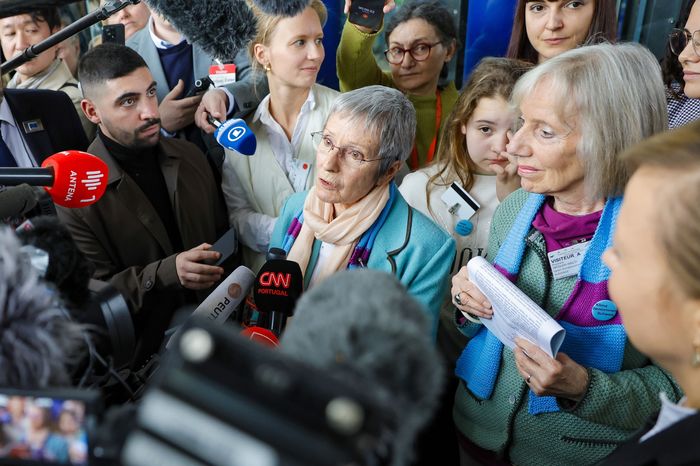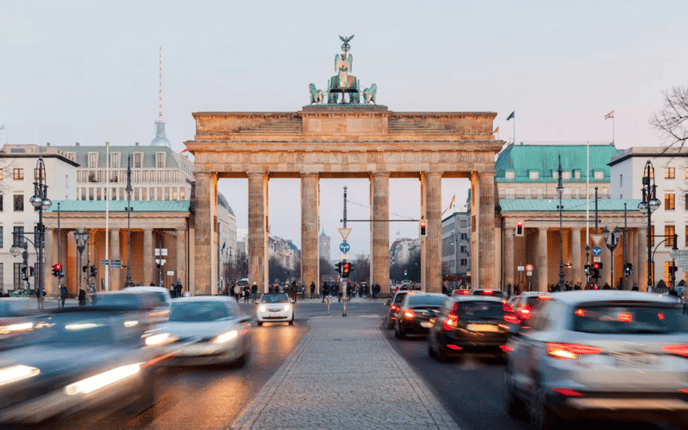
Swiss Climate Ruling will reverberate around the world
What's going on in the world of ESG, CSRD, SDGs...
1. SWISS CLIMATE RULING WILL REVERBERATE AROUND THE WORLD
The European court of human rights ruled this week that Switzerland’s failure to do enough to cut its national GHGs was a clear violation of human rights. A group of older women argued their rights were being breached because they were particularly vulnerable to health impacts of heatwaves.
The court ruled that Switzerland should now act within the bounds of what science shows is clearly required to prevent further harm.
This is a seismic shift in the role courts play in the climate crisis. The ruling opens the way for many climate-related lawsuits that are currently adjourned and will definitely bolster other ongoing lawsuits around Europe.
The decision, from 17 judges from different countries, was nearly unanimous. Only the UK judge dissented. More about that next.
2. UK ENERGY SECRETARY OBJECTS TO SWISS CLIMATE RULING
The European Court of Human Rights in Strasbourg ruled that governments are obligated to protect people from the impacts of climate change. The UK Energy Secretary Claire Coutinho objected to the ruling.
“How we tackle climate change affects our economic, energy, and national security. Elected politicians are best placed to make those decisions.”
The arrogance is unbelievable.
Climate change affects economies, energy, and security. Sadly many elected politicians often fail to make good decisions. Instead they are making arguments to avoid actions that would lead to a low carbon global economy, and a habitable planet.
We obviously need the ECHR in Strasbourg.
3. SBTI EMPLOYEES REJECT UN-SCIENCE BASED TARGETS
SBTi's mission (allegedly) is to motivate companies to reduce GHG emissions. They award companies with a certification.
SBTi has always ignored the S in ESG.
Now SBTi are said to be accepting carbon offsets. Employees are not happy. A letter has been sent by employees calling for the resignation of the CEO, promising "further action" if demands are not met.
SBTi now seems more about the badge, than what the badge was supposed to stand for.
A more strategic approach (like CSRD) is needed if we expect companies to do better business and make more responsible decisions. No successful business strategy was ever conceived using a one-dimensional metric. The same is true of sustainability.
4. IN CASE YOU DIDN’T NOTICE, IT IS PRETTY HOT CONSISTENTLY
That’s ten consecutive months. March is another hottest month. Oceans have now been at record highs for more than a year. Scientists are asking: “Is this year is a blip, or is the climate system broken?”
Temps are not likely to stabilize anytime soon. A new National Oceanic and Atmospheric Association report found that the concentrations of the three leading global warming causing gasses – C02, CH4, and NO – all hit record highs in 2023.
In reference to these unwelcome records, the UN’s climate chief, Simon Stiell, told a room full of bankers, politicians, and business leaders that the next two years will be "essential in saving our planet.”
NOT a drill.
Reference: https://www.ft.com/content/255386e8-165d-4e49-8422-8296cf4e6cfc
5. EPA SETS LIMITS ON FOREVER CHEMICALS IN DRINKING WATER
The EPA imposed federal limits on PFAS, or "forever chemicals," in drinking water. Government can enforce limits in public water systems on levels of toxic chemicals linked to cancer and other health risks.
PFAS, or per-and polyfluoroalkyl substances, are a class of nearly indestructible chemicals found in many items, such as non-stick pans, firefighting foam, and other water-repellent products.
Up to 10% of 66,000 water systems to which the new rule applies may need to reduce the PFAS levels in their water. Water systems will have three years to complete an initial test for current levels of PFAS in their water supply. If the levels are too high, they must be reduced within five.
Seems a bit slow, but reasonable.
Reference: https://eu.usatoday.com/story/news/nation/2024/04/10/epa-pfas-drinking-water-limits/73273778007/
6. FOSSIL FREE STEEL MILL TO REDUCE SWEDEN’S ENTIRE EMISSIONS 7%
Sweden-based steel company SSAB has decided to build a fossil-free mini-mill capable of producing 2.5 MT of carbon emission-free steel annually.
Total investment is €4.5Bn, and the project is expected to reduce Sweden’s CO2 emissions by 7%. That is remarkable.
Steelmaking is one of the biggest emitters of CO2 globally, accounting for ~8% of direct emissions from the global use of fossil fuels.
The new mill will run on fossil-free electricity and use only fossil-free energy sources. As opposed to burning coal, an electric arc furnace uses electric currents to create the heat needed to melt and mold metal.
The new mill will be supplied by selected recycled scrap and fossil free sponge iron.
7. ENERGY PERFORMANCE OF BUILDINGS DIRECTIVE ADOPTED
The European Council formally adopted the revised Energy Performance of Buildings Directive (EPBD), to reduce energy use and emissions from buildings across the EU.
All new buildings must to be zero emissions by 2030, and the use of fossil fuels in heating must be phased out by 2040.
Buildings are a key source of emissions, and hard to replace, given their long-term nature. Buildings account for 40% of the energy consumed in the EU, and for 36% of energy-related GHG emissions. 80% of household energy consumption is used for heating, cooling, and hot water.
By 2050, the directive envisions the transformation of the EU’s building stock to zero emissions buildings.
Reference: https://www.esgtoday.com/eu-adopts-law-requiring-all-new-buildings-to-be-zero-emissions-by-2030/?
8. ICJ TO ADVISE ON LEVEL OF COUNTRIES’ CLIMATE LIABILITIES
It is all happening in the courts.
The International Court of Justice has announced that a record high 91 member states and organisations have submitted written statements on its advisory opinion on the Obligations of States in respect of Climate Change.
At the request of the United Nations General Assembly, the ICJ will opine on the existing financial liability of countries for their contribution to climate change.
The opinion, while non-binding, will give an indicator of how the Court may interpret future climate related litigation and guide future legislative development.
Every nudge matters.
Reference: https://tinyurl.com/47xz95f3
9. 100,000 EVACUATED FROM FLOODS IN RUSSIA AND KAZAKSTAN
No place is immune from climate change.
Flooding in Russia and Kazakhstan has prompted evacuation of more than 100,000. The flooding, described as the worst to hit the region in decades, was sparked by a sudden period of warm weather that caused a mass snowmelt in the Urals and in Siberia.
In an unusual move, Russia released video showing transport aircraft delivering aid to affected regions. The aid consisted of food, bottled water, personal hygiene products, medical supplies, blankets and rubber boots.
Footage also showed aircraft being loaded with dam-building equipment to be delivered to regions hit the worst.
The level of flooding exceeded 11 metres in the region of Orenburg, Russia. 11 metres!
10. HIGHLY DANGEROUS GHGS ARE SMUGGLED INTO EUROPEAN UNION
Large volumes of climate-warming gases are being smuggled into Europe from China and Turkey, a new investigation has found.
The illegal trafficking is compromising the global push to phase them out, a report by the London-based Environmental Investigation Agency (EIA) said this week.
These hydrofluorocarbons (HFCs), described by the EIA as “super-pollutant”, are a group of synthetic gases that are predominantly used for cooling and refrigeration.
Despite the commitment to curb the use of HFCs, demand remains high and prices have consequently soared.
The impact of hydrofluorocarbons on global warming can be up to thousands of times greater than that of carbon dioxide.
Reference: https://tinyurl.com/2s3fhp95
11. GOOGLE CONTRACT WITH ISRAEL DEFENSE MINISTRY DEEPENS
Google provides cloud computing services to the Israeli Ministry of Defense and the tech giant is deepening its partnership during Israel’s war in Gaza, according to a company document viewed by TIME.
The Israeli Ministry of Defense, according to the document, has a secure entry point to Google-provided computing infrastructure, which would allow the ministry to store and process data, and access AI services.
The ministry sought consulting support from Google to expand its Google Cloud access, to allow “multiple units” to access automation technologies, according to a draft contract March 27, 2024. The contract shows Google billing the Israeli Ministry of Defense over $1 million for the consulting service.
You have to decide how you feel about that.
Reference: https://tinyurl.com/yey5jafu


